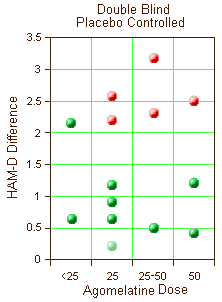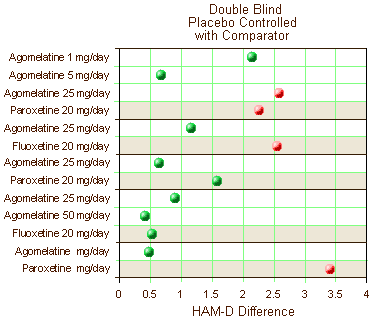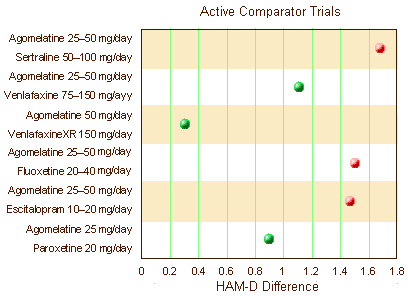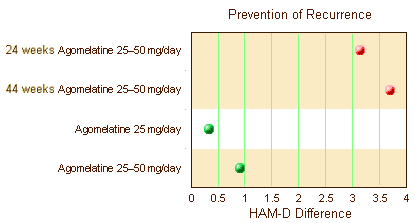Prominent psychiatrist and mental health commissioner Ian Hickie claims he is the victim of a "personalised" campaign as vested interests who are fighting government mental health reforms try to undermine him. His claims come after Australian and international mental health experts criticised a research paper on new melatonin-based antidepressant treatments he had published in The Lancet. They accused him of bias, links to the Servier drug company, and underplaying the side-effects of treatments discussed.Professor Hickie says The Lancet asked him to write the paper. He says he declared his links with Servier in the article, which was subject to a two-year peer review before being published. Writing before the criticisms were published, The Lancet editor Richard Horton tweeted last month, "the bias in this paper is very disturbing… as troubling as the fact that one author took part in speaking engagements for the company making one of these drugs."
…"This is part of a more concerted campaign, a reaction against our advocacy for new investment in mental health… against basically taking forward the mental health agenda in this country," he told The Australian. Mr Butler said yesterday Professor Hickie was "one of Australia’s leading thinkers in mental health" who "advised the government on the development of our record mental health package". Mental Health Council chief Frank Quinlan said professors Hickie and McGorry were held in "very high standing" by the mental health community. The attacks on the experts "takes away from the focus on the bigger issues where mental health is chronically and seriously underfunded", he said.Flinders University adjunct lecturer Melissa Raven and University of Adelaide professor Jon Jureidini complained to The Lancet last month that Professor Hickie’s paper misrepresented the findings of studies he cited and complained its summary ignored the results of two trials reported in the body of the paper. They said he was supported by Servier to appear at media briefings supporting its new melatonin-based antidepressant, Valdoxan. "Because he has enormous influence on Australian mental health policy [including being a member of the new National Mental Health Commission], and because he uses his academic publications [and media pronouncements] as lobbying tools, it has significant implications that go far beyond potential financial conflict of interest," Ms Raven told The Australian.
Professor Hickie is now negotiating a $100,000 research grant with Servier on the effect of its drug Valdoxan on the circadian system but says this was not on the horizon when he wrote The Lancet paper two years ago.
When I read the Lancet article favorably reviewing Agomelatine [a melatonergic agonist and 5-HT2C antagonist approved for depression in Europe and Australia], I thought it deserved commenting on independent of who wrote it or where it was written. The feel of the article was just too familiar – like one of those review articles reminiscent of the not so distant days of the Nemeroff’s Era. Lots of mechanism talk up front [melatonin, sleep phases, and depression], some difficult to follow tables of studies in the middle, and then glowing talk of Agomelatine’s possibilities for the finale. I didn’t want to indict it on feel alone, so I put the data into a less obscure graphic format [red = p<0.05]:




Then we read that both authors have significant conflicts of interest in their involvement with Sevier, maker of Agomelantine [long overdue…], particularly Dr. Hickie. Throw into the mix that after this Lancet article was accepted, the attempt to get approval in the US from the FDA was abandoned when Agomelatine failed its most recent Phase III clinical trial. Finally, there was a large negative reaction from the scientific community [it’s about time…] – even the Lancet editor himself weighing in on Twitter.
 In an indirect way, there may well be a kernal of truth in this latter, more paranoid version. I say that because I feel the same way about both of those issues myself. In the part of McGorry’s and Hickie’s mental health programs that I know about – the early treatment of pre-schizophrenia, I’m intrigued by the hypothesis that since we have some good ideas about the prodromal symptoms, and if we could accurately detect them in advance, and if we could figure out how to treat them, we might be able to prevent the kind of deterioration that comes with frank psychosis. Who wouldn’t want to do that? It’s a logical application of solid preventive medicine principles. The problem is that their expensive implementation is based on the hypothesis itself as if it has already been proved. It hasn’t. It has floundered in both and ifs – accurate detection and preventive treatment. Hickie’s Agomelatine paper has the same problem. His hypothesis that disturbances in the sleep cycle are related to depression, or some depressions, is intuitively intriguing – worthy of further study. But again he’s jumping the gun. The data on Agomelatine just doesn’t support his rosy predictions about the drug. So his post hoc assertion that, "… we prepared a balanced and independent report of the potential role of new melatonin-based strategies that target the circadian system," falls on deaf ears. In both cases, he’s trying to sell us on the idea that he’s further down the road than he actually is and uninfluenced by other forces. So maybe there is a unifying principle to the criticism headed his way – in both cases, he’s being accused of blurring the distinction between science fiction and science, between informed fantasy and hard won proof – being driven by ambition and/or outside forces.
In an indirect way, there may well be a kernal of truth in this latter, more paranoid version. I say that because I feel the same way about both of those issues myself. In the part of McGorry’s and Hickie’s mental health programs that I know about – the early treatment of pre-schizophrenia, I’m intrigued by the hypothesis that since we have some good ideas about the prodromal symptoms, and if we could accurately detect them in advance, and if we could figure out how to treat them, we might be able to prevent the kind of deterioration that comes with frank psychosis. Who wouldn’t want to do that? It’s a logical application of solid preventive medicine principles. The problem is that their expensive implementation is based on the hypothesis itself as if it has already been proved. It hasn’t. It has floundered in both and ifs – accurate detection and preventive treatment. Hickie’s Agomelatine paper has the same problem. His hypothesis that disturbances in the sleep cycle are related to depression, or some depressions, is intuitively intriguing – worthy of further study. But again he’s jumping the gun. The data on Agomelatine just doesn’t support his rosy predictions about the drug. So his post hoc assertion that, "… we prepared a balanced and independent report of the potential role of new melatonin-based strategies that target the circadian system," falls on deaf ears. In both cases, he’s trying to sell us on the idea that he’s further down the road than he actually is and uninfluenced by other forces. So maybe there is a unifying principle to the criticism headed his way – in both cases, he’s being accused of blurring the distinction between science fiction and science, between informed fantasy and hard won proof – being driven by ambition and/or outside forces.
“Hell bent on making his mark. But what scientist isn’t at some level?” Perhaps this is what happened to the scientist at Duke with the genetically based cancer treatment that was fantasy without facts; covered last night on 60 Minutes. Certainly the problems are limited to psychiatry! What a mess. What a holy mess.
Arin Potti’s deceit will reverberate for some time, I’m afraid. The fact that this kind of genomic methodology is so complex that it’s hard to detect misbehavior complicates matters. In Psychiatry, we’re about to have to deal with iSPOT and EMBARC – large studies looking for “personalized medicine” biomarkers. I’ve gotten two emails from people expecting the worst. I haven’t seen the 60 minutes report yet [taped because of the Grammies], but I sure know about Anil Potti, Duke’s worst nightmare [junk science on the leading edge…, overlooked…, industry on parade once again…].
Hi Mickey, I’ve weighed in on the debate about Ian Hickie on my website: http://johnalchin.info/2012/02/13/time-for-ian-hickie-to-put-up-and-shut-up/. You’re right to point out that both Professors Hickie and McGorry rely on ad hominem responses to their critics but rarely reply with any substantive response.
obviously, I can’t type:” the problems AREN’T limited to psychiatry”. Sorry about the typo. But, Mickey, you were wise to watch the Grammy’s . What a night. And I guess we won’t weigh in about a talent like Whitney’s and the possibility that her premature end was caused by “psychotropic medication”. Xanax? No question about efficacy. Terrific efficacy. Sort of like Ritalin. Really great efficacy. But at what cost? What side effects? What long term damage?
I think you need to start paying attention to the dialogue this woman’s death is creating. I just watched a bit of Dr Drew’s show, and he seems to say at least a bit that physicians are culpable for writing benzo scripts.
And yet, where is the dialogue about patients having accountability for lying and manipulating those of us honestly trying to diagnose and treat anxiety disorders!? I wrote this earlier at an addiction blog and say it here: time to make certain controlled substances like OxyContin, xanax, and amphetamine based stimulants Controlled 1 status, so only the brave and fearless will write ’em!
Hey, it is a start.
Oh yes, I was just saying to a psychiatrist colleague last night the various “entertainment” blogs will be hunting down her prescription writer a la Michael Jackson. Let’s hope he/she was nowhere near the Beverly Hilton in recent days.